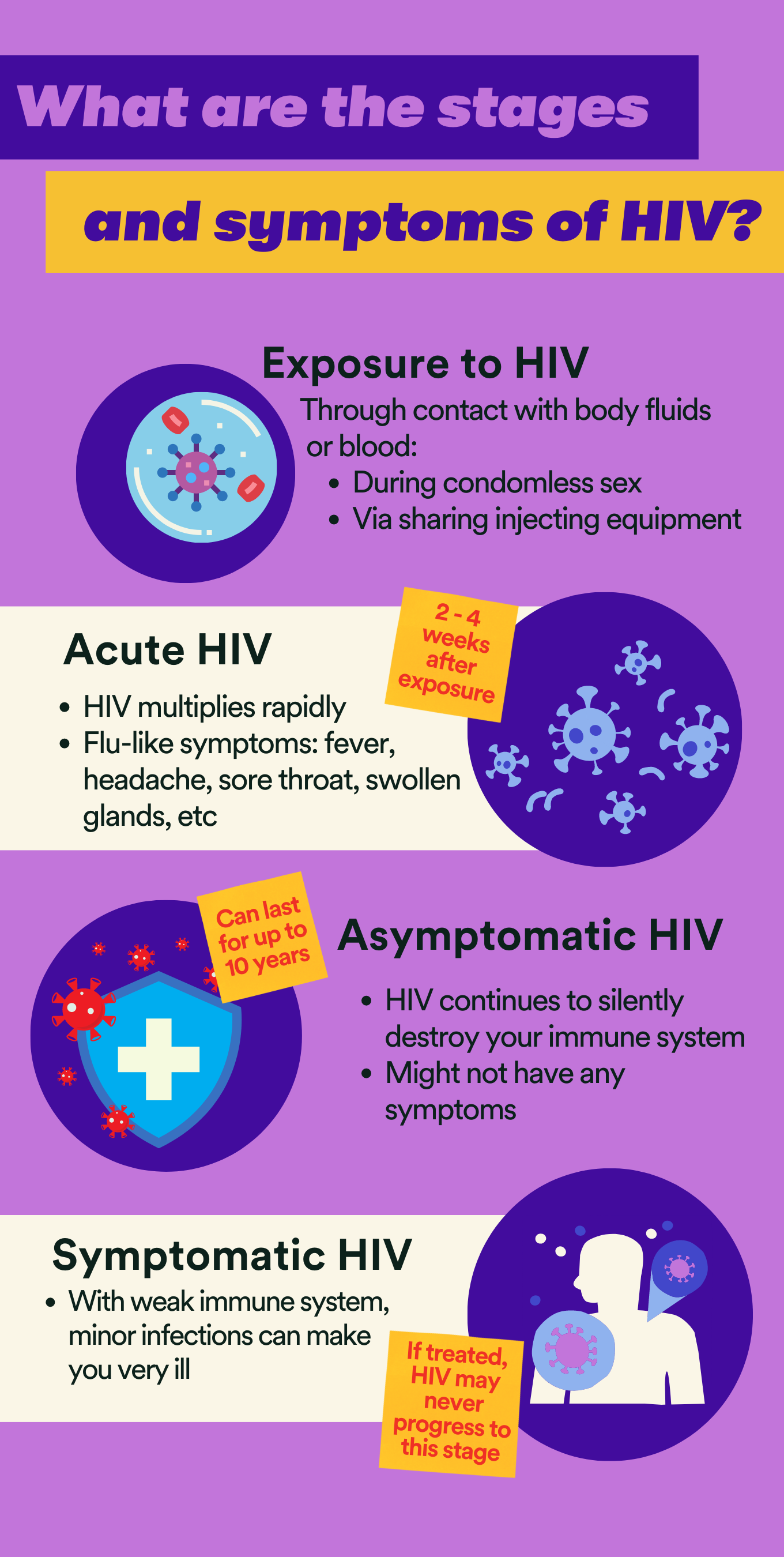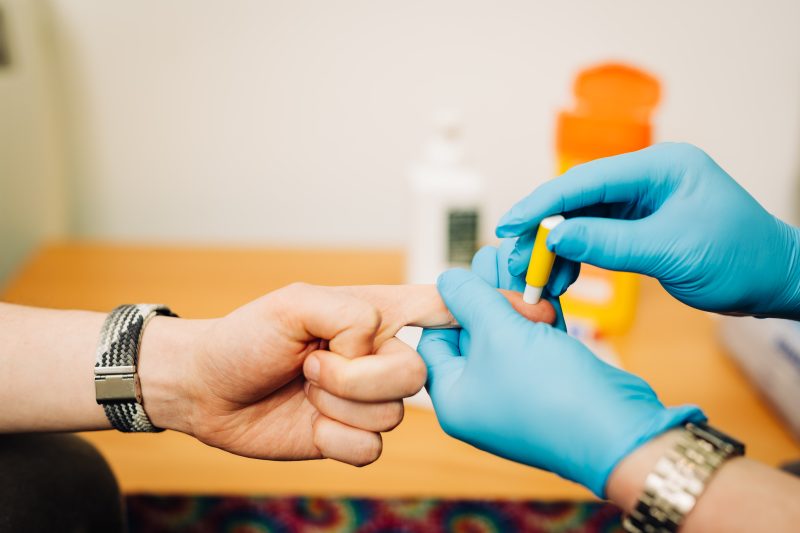HIV symptoms can start off quite mild, or there can be none at all. However, if left untreated, HIV can progress and make you more ill over time.
Key things to know
You can have HIV and not have any symptoms. Getting an HIV test is the only way to know if you have HIV.
Some people don’t notice their symptoms at first, and others ignore their early symptoms because they don’t think they are serious enough. Left untreated, HIV continues to damage your immune system even if you don’t have any symptoms.
If you have had unprotected sex or have another reason to think that you might have HIV, you can find HIV testing near you by using our service finder.
Service finder
What are the stages of HIV?
The stages of HIV describe the progression of HIV over time in people who are not taking HIV treatment. Each stage is associated with specific symptoms that are the result of a weakening immune system.

Acute HIV infection
Acute HIV infection (also known as seroconversion) happens in the first few weeks after the virus gets into your body. At this stage the levels of HIV are very high in your blood. This stage is associated with short flu-like symptoms: fever, swollen glands, muscle aches and tiredness.
Due to high levels of the HIV in your blood, the risk of passing HIV on to others is higher than at other times.
Asymptomatic HIV infection
This is the stage where you might not have any symptoms or obvious health problems. During this stage, HIV is still active and damages your immune system. This ‘silent’ period can last for several years until you start noticing more serious health problems.
Many people in this stage are unaware that they have HIV, which makes the risk of transmission to others high.
Symptomatic HIV infection
At this stage your immune system is weakened and, if you don’t receive treatment, you start developing more serious symptoms. These include prolonged diarrhea, night sweats, thrush, pneumonia and weight loss. Many people only get tested and treated for HIV at this stage.
The treatment started at this stage is still effective and can strengthen your immune system to avoid serious illnesses.
After starting treatment
No matter at what stage you start your treatment, HIV medication can strengthen your immune system and allow it to repair itself. Most people on HIV treatment continue to live with HIV which is manageable and has little to no effect on their health or quality of life. It is highly unlikely that you will fall ill or die as a direct result of HIV.
Untreated HIV
If HIV is not treated, the condition gets progressively worse and your immune system continues to weaken. Without a strong immune system, you are more prone to severe infections and illnesses as your body can’t fight them off easily. There is a risk of developing late-stage HIV, which means that your immune system is severely damaged.
Without treatment, HIV can also be easily passed on to other people through sex without a condom and through other routes of transmission. For more information on the progression of HIV, check out NAM’s useful resources on HIV and the immune system.
Learn more
HIV attacks your white blood cells which are part of your immune system that protects you from infections and illnesses. HIV uses white blood cells to multiply and spread throughout your body.
HIV treatment works by blocking HIV from multiplying. This increases the number of white blood cells, which in turn allows your immune system to recover and function normally again.
AIDS (Acquired Immunodeficiency Syndrome) is a term used to describe a collection of HIV-related illnesses.
Thanks to modern treatment, it is now very rare for people living with HIV to get diagnosed with AIDS. Therefore the term is not commonly used anymore.
Some clinicians may use the term ‘advanced HIV’ or ‘late-stage HIV’ to describe health complications that may occur if someone has been living with HIV for some time and is not on treatment.
Check out NAM’s website for more information on the difference between HIV and AIDS.
Late diagnosis of HIV means that your immune system has been damaged by the virus. This makes your body more prone to infections which can progress to severe illnesses.
Even if you are diagnosed late, treatment can help build your immune system back up and significantly improve your health. It also reduces the risk of you developing serious illnesses. If you have been diagnosed with HIV, contact your local sexual health clinic or your GP and they will refer you to a specialist HIV services.
You can also get in touch with us for advice and support with a new diagnosis.
Looking for support?
If you, or someone you know, is living with HIV and need support with understanding the diagnosis, what it means, or what to do next, we are here to help. Find a service near you using our service finder.







